Company Details
australian-energy-market-commission
136
22,082
921
aemc.gov.au
0
AUS_1172784
In-progress
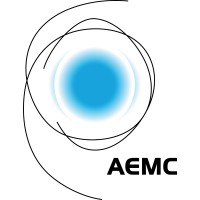
Australian Energy Market Commission (AEMC) Company CyberSecurity Posture
aemc.gov.auThe Australian Energy Market Commission (AEMC) provides advice to governments on energy market development and is the rule maker for Australian electricity and gas markets. We take a long-term view of what needs to be done to assure consumers of reliable, secure, electricity and gas services at the best price. The National Electricity Rules, National Gas Rules and Retail Energy Rules impact on how market participants can operate in the competitive wholesale generation and retail sectors; provide specific rights for consumers to whom energy is sold or supplied; and also govern the economic regulation of electricity transmission and distribution services – the ‘poles and wires’ – and gas pipelines. Stakeholder concerns are at the heart of our work. Our stakeholders help shape our thinking and provide valuable input to our rule making and advice to governments.
Company Details
australian-energy-market-commission
136
22,082
921
aemc.gov.au
0
AUS_1172784
In-progress
Between 700 and 749

 AEMC Global Score (TPRM)
AEMC Global Score (TPRM)XXXX



No incidents recorded for Australian Energy Market Commission (AEMC) in 2025.
No incidents recorded for Australian Energy Market Commission (AEMC) in 2025.
No incidents recorded for Australian Energy Market Commission (AEMC) in 2025.
AEMC cyber incidents detection timeline including parent company and subsidiaries

The Australian Energy Market Commission (AEMC) provides advice to governments on energy market development and is the rule maker for Australian electricity and gas markets. We take a long-term view of what needs to be done to assure consumers of reliable, secure, electricity and gas services at the best price. The National Electricity Rules, National Gas Rules and Retail Energy Rules impact on how market participants can operate in the competitive wholesale generation and retail sectors; provide specific rights for consumers to whom energy is sold or supplied; and also govern the economic regulation of electricity transmission and distribution services – the ‘poles and wires’ – and gas pipelines. Stakeholder concerns are at the heart of our work. Our stakeholders help shape our thinking and provide valuable input to our rule making and advice to governments.

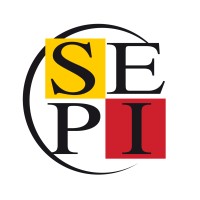
La Sociedad Estatal de Participaciones Industriales (SEPI) desarrolla su actividad a través de tres grandes líneas de trabajo: - Como primer holding público empresarial de España impulsa el desarrollo y crecimiento de sus empresas, con el doble objetivo de lograr su rentabilidad económica y social.
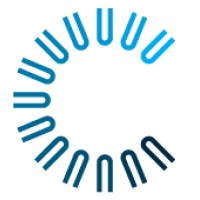
The Canadian Urban Institute (CUI) is a non-profit applied research organization headquartered in Toronto, Ontario. We focus on solutions for the built environment that balance human, ecological and economic impacts in order to achieve healthy urban development both in Canada and internationally.

A stable home provides a platform for positive growth, vibrant neighborhoods, and economic prosperity. However, 54,000 Franklin County households living in poverty now pay more than half of their income for housing. AHACO has a plan to cut that gap in half. Join our movement to solve the affordable

The Data Coalition is an initiative of the non-profit Data Foundation. The membership-based initiative facilitates a strong national data community and advocates for responsible policies to make government data high-quality, accessible, and usable. The Data Coalition is an initiative of the non-pr
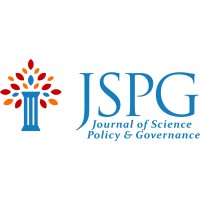
The Journal of Science Policy & Governance (JSPG) is a 501-c3 non-profit organization based in the United States and an internationally recognized, open-access, peer-reviewed publication dedicated to elevating students, post-docs, policy fellows and young scholars in science, technology and innovati
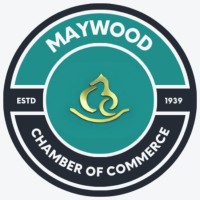
As a cornerstone of economic development in the Village of Maywood, the Maywood Chamber of Commerce is committed to building a thriving and inclusive business community. We advocate for policies and initiatives that foster entrepreneurship, drive local investment, and create lasting economic opportu
.png)
All new smart meters in Australia will have to be able to share real-time data from January 2028 under a new proposal from the energy market...
The Australian Energy Market Commission (AEMC) has announced it has completed a comprehensive overhaul of the technical requirements for connecting to the...
The Australian Energy Market Commission is considering new rules to manage an expected influx of high-capacity data centres in coming years.
Monash University has forged a landmark alliance with the Australian Energy Market Commission (AEMC) in a move expected to help bridge the gap between energy...
Australia's ambitious energy transition aims to reduce carbon emissions while ensuring energy security and affordability. Read more.
We look at the latest rule changes and market updates affecting participants in the Australian electricity and gas markets.
Proposed rule change: Real-time data for consumers (ERC0399). National Seniors Australia (NSA) welcomes the opportunity to make this submission to the...
The Australian Energy Market Commission is considering improving consumer access to (near) real-time electricity usage and generation...
The Australian Energy Market Commission (AEMC) is seeking feedback from industry on how smart data options could benefit consumers alongside...

Explore insights on cybersecurity incidents, risk posture, and Rankiteo's assessments.
The official website of Australian Energy Market Commission (AEMC) is http://www.aemc.gov.au.
According to Rankiteo, Australian Energy Market Commission (AEMC)’s AI-generated cybersecurity score is 745, reflecting their Moderate security posture.
According to Rankiteo, Australian Energy Market Commission (AEMC) currently holds 0 security badges, indicating that no recognized compliance certifications are currently verified for the organization.
According to Rankiteo, Australian Energy Market Commission (AEMC) is not certified under SOC 2 Type 1.
According to Rankiteo, Australian Energy Market Commission (AEMC) does not hold a SOC 2 Type 2 certification.
According to Rankiteo, Australian Energy Market Commission (AEMC) is not listed as GDPR compliant.
According to Rankiteo, Australian Energy Market Commission (AEMC) does not currently maintain PCI DSS compliance.
According to Rankiteo, Australian Energy Market Commission (AEMC) is not compliant with HIPAA regulations.
According to Rankiteo,Australian Energy Market Commission (AEMC) is not certified under ISO 27001, indicating the absence of a formally recognized information security management framework.
Australian Energy Market Commission (AEMC) operates primarily in the Public Policy Offices industry.
Australian Energy Market Commission (AEMC) employs approximately 136 people worldwide.
Australian Energy Market Commission (AEMC) presently has no subsidiaries across any sectors.
Australian Energy Market Commission (AEMC)’s official LinkedIn profile has approximately 22,082 followers.
Australian Energy Market Commission (AEMC) is classified under the NAICS code 921, which corresponds to Executive, Legislative, and Other General Government Support.
No, Australian Energy Market Commission (AEMC) does not have a profile on Crunchbase.
Yes, Australian Energy Market Commission (AEMC) maintains an official LinkedIn profile, which is actively utilized for branding and talent engagement, which can be accessed here: https://www.linkedin.com/company/australian-energy-market-commission.
As of November 27, 2025, Rankiteo reports that Australian Energy Market Commission (AEMC) has not experienced any cybersecurity incidents.
Australian Energy Market Commission (AEMC) has an estimated 1,026 peer or competitor companies worldwide.
Total Incidents: According to Rankiteo, Australian Energy Market Commission (AEMC) has faced 0 incidents in the past.
Incident Types: The types of cybersecurity incidents that have occurred include .
.png)
Angular is a development platform for building mobile and desktop web applications using TypeScript/JavaScript and other languages. Prior to versions 19.2.16, 20.3.14, and 21.0.1, there is a XSRF token leakage via protocol-relative URLs in angular HTTP clients. The vulnerability is a Credential Leak by App Logic that leads to the unauthorized disclosure of the Cross-Site Request Forgery (XSRF) token to an attacker-controlled domain. Angular's HttpClient has a built-in XSRF protection mechanism that works by checking if a request URL starts with a protocol (http:// or https://) to determine if it is cross-origin. If the URL starts with protocol-relative URL (//), it is incorrectly treated as a same-origin request, and the XSRF token is automatically added to the X-XSRF-TOKEN header. This issue has been patched in versions 19.2.16, 20.3.14, and 21.0.1. A workaround for this issue involves avoiding using protocol-relative URLs (URLs starting with //) in HttpClient requests. All backend communication URLs should be hardcoded as relative paths (starting with a single /) or fully qualified, trusted absolute URLs.
Forge (also called `node-forge`) is a native implementation of Transport Layer Security in JavaScript. An Uncontrolled Recursion vulnerability in node-forge versions 1.3.1 and below enables remote, unauthenticated attackers to craft deep ASN.1 structures that trigger unbounded recursive parsing. This leads to a Denial-of-Service (DoS) via stack exhaustion when parsing untrusted DER inputs. This issue has been patched in version 1.3.2.
Forge (also called `node-forge`) is a native implementation of Transport Layer Security in JavaScript. An Integer Overflow vulnerability in node-forge versions 1.3.1 and below enables remote, unauthenticated attackers to craft ASN.1 structures containing OIDs with oversized arcs. These arcs may be decoded as smaller, trusted OIDs due to 32-bit bitwise truncation, enabling the bypass of downstream OID-based security decisions. This issue has been patched in version 1.3.2.
Suricata is a network IDS, IPS and NSM engine developed by the OISF (Open Information Security Foundation) and the Suricata community. Prior to versions 7.0.13 and 8.0.2, working with large buffers in Lua scripts can lead to a stack overflow. Users of Lua rules and output scripts may be affected when working with large buffers. This includes a rule passing a large buffer to a Lua script. This issue has been patched in versions 7.0.13 and 8.0.2. A workaround for this issue involves disabling Lua rules and output scripts, or making sure limits, such as stream.depth.reassembly and HTTP response body limits (response-body-limit), are set to less than half the stack size.
Suricata is a network IDS, IPS and NSM engine developed by the OISF (Open Information Security Foundation) and the Suricata community. In versions from 8.0.0 to before 8.0.2, a NULL dereference can occur when the entropy keyword is used in conjunction with base64_data. This issue has been patched in version 8.0.2. A workaround involves disabling rules that use entropy in conjunction with base64_data.

Get company history
















Every week, Rankiteo analyzes billions of signals to give organizations a sharper, faster view of emerging risks. With deeper, more actionable intelligence at their fingertips, security teams can outpace threat actors, respond instantly to Zero-Day attacks, and dramatically shrink their risk exposure window.
Identify exposed access points, detect misconfigured SSL certificates, and uncover vulnerabilities across the network infrastructure.
Gain visibility into the software components used within an organization to detect vulnerabilities, manage risk, and ensure supply chain security.
Monitor and manage all IT assets and their configurations to ensure accurate, real-time visibility across the company's technology environment.
Leverage real-time insights on active threats, malware campaigns, and emerging vulnerabilities to proactively defend against evolving cyberattacks.




